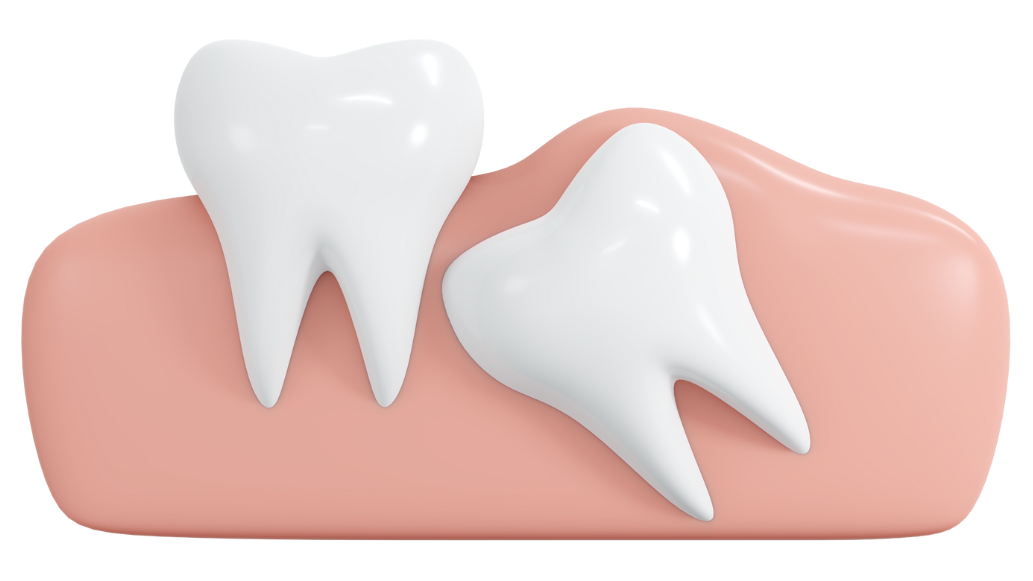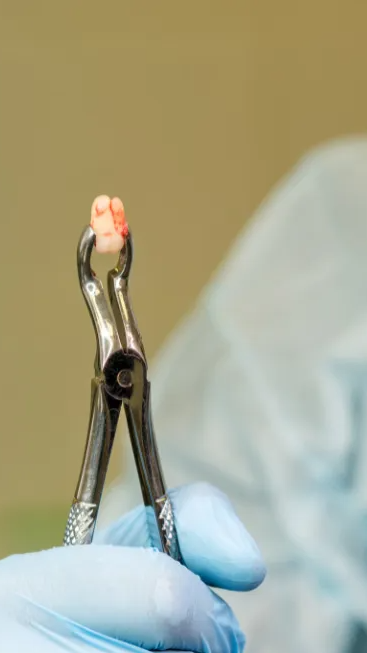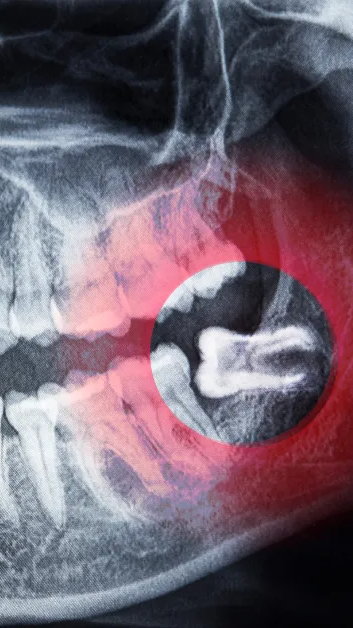Wisdom Teeth Removal
Wisdom teeth, also known as the third molars located at the back of the mouth, may not require extraction if they meet the following criteria:
- They are healthy.
- They have fully grown in.
- They are positioned correctly and biting properly.
- They can be cleaned daily.
It is not uncommon for wisdom teeth to encounter obstacles when attempting to emerge. The limited space available often hinders their proper growth, potentially resulting in a range of complications. These teeth may manifest at different angles within the jaw, occasionally even growing in horizontally. Such variations in development can contribute to discomfort, pain, and other dental concerns.

When is the appropriate time to have wisdom teeth extracted?
Typically, the extraction of wisdom teeth is performed during early adulthood, usually between the ages of 15 and 22. This is considered to be a safer, simpler, and faster recovery process compared to removing wisdom teeth at a later stage in life. The reason for this is that the roots of the teeth are not fully developed, the jawbone is less dense, and the healing process after surgery is generally quicker. As a result, it is common for young adults to undergo wisdom teeth extraction as a preventive measure before any issues arise.
According to the guidelines provided by the American Dental Association, the extraction of wisdom teeth may be necessary if you experience any of the following conditions:
- Discomfort or pain in or around the wisdom teeth.
- Gum disease.
- Frequent infections in the soft tissue located behind the last lower tooth.
- Presence of cysts, which are fluid-filled sacs.
- Tumors.
- Damage to neighboring teeth.
- Severe dental decay.
What does it mean when a tooth is impacted?
Impaction happens when a tooth doesn't fully come out of the gums. Wisdom teeth can be impacted in different ways:
- In cases of hard tissue (bony) impaction, the tooth stays within the bone. This can be either partial or complete.
- Soft tissue impaction occurs when the top of the tooth is above the bone and is only covered by gum tissue.
- Wisdom teeth can grow in different directions. They can grow straight up and down, sideways, or at an angle. The angle can be away from other teeth or towards other teeth.
What happens during the extraction of wisdom teeth?
- To assess your wisdom teeth, we will take x-ray images of your mouth. Most individuals choose to have all four teeth extracted in a single procedure.
- Local anesthesia will be administered to numb the area where the tooth or teeth will be extracted. You will remain conscious throughout the procedure.
- If necessary, we offer sedation anesthesia, commonly known as nitrous oxide or "laughing gas." This gentle sedative effectively manages pain and anxiety during dental treatment.
- One of our experienced dentists will make an incision in the gum tissue to remove the tooth. In certain cases, it may be necessary to remove bone tissue that is obstructing the tooth.
- The tooth will be extracted, and if needed, it may be divided into smaller pieces for easier removal.
- Finally, we will suture the wound.
Recovering from Wisdom Teeth Extraction: A Guide
To improve the chances of a successful recovery, please follow these recommendations:
- Regularly change the gauze pad that covers the wound.
- Apply an ice pack to reduce swelling.
- Refrain from drinking alcohol, smoking, and participating in physical activities.
- Rinse gently with warm salt water to neutralize bacteria.
- Avoid using a straw.
- Continue with your regular brushing and flossing routine to prevent the buildup of food particles and harmful bacteria in your mouth. Be careful not to brush the wound.
These steps will help ensure a smooth recovery process.



